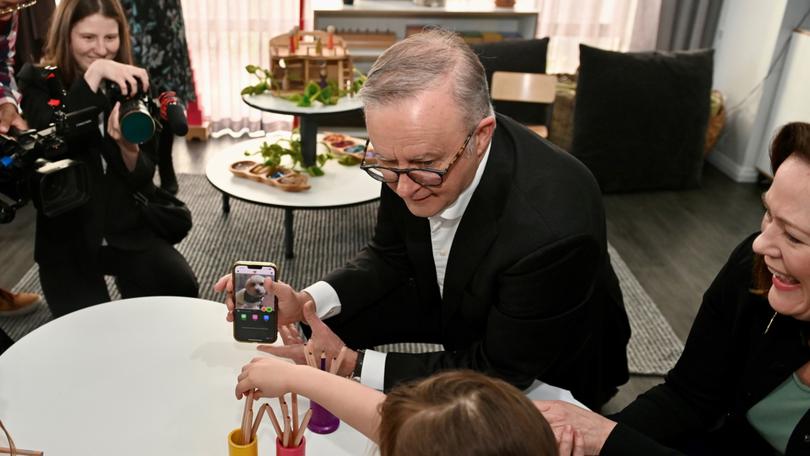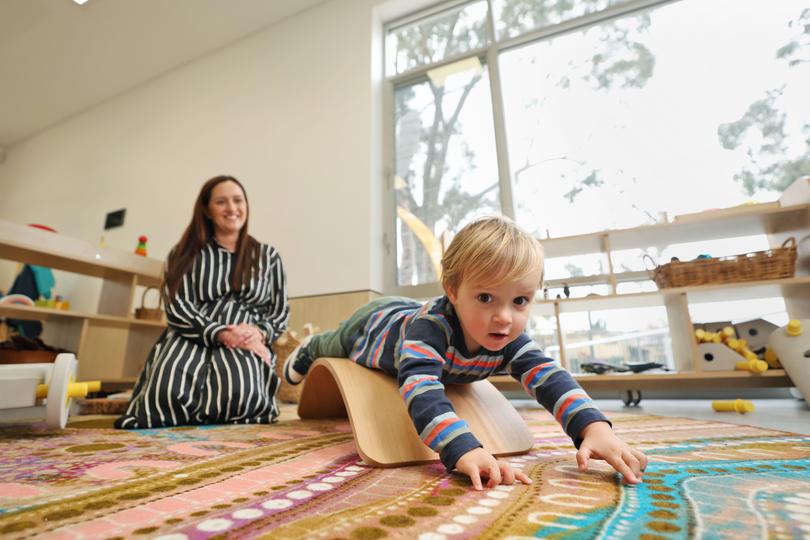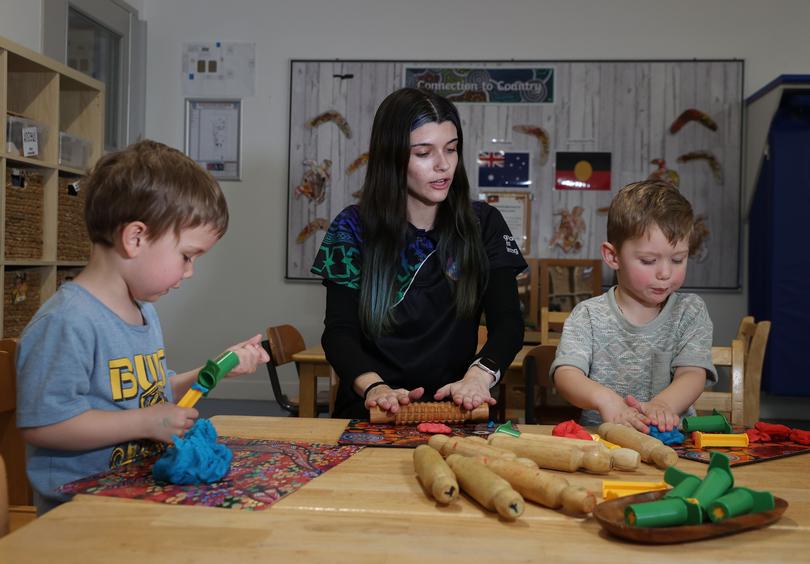Blueprint to transform Australia’s childcare to a universal system within a decade to be revealed
A blueprint for the future of childcare being released on Wednesday will tell the Government how to shift to a universal system akin to Medicare within a decade, but it is expected to cost billions of dollars.

A blueprint for the future of childcare will tell the Government how to shift to a universal system akin to Medicare within a decade, but it is expected to cost billions of dollars more.
Prime Minister Anthony Albanese wants a universal childcare system to form the centrepiece of his second-term election offerings, building on 2022’s cheaper childcare promise and this year’s 15 per cent boost to educator wages.
The Government will release the Productivity Commission’s report on how to reach this goal on Wednesday, after sitting on it for almost three months.
Sign up to The Nightly's newsletters.
Get the first look at the digital newspaper, curated daily stories and breaking headlines delivered to your inbox.
By continuing you agree to our Terms and Privacy Policy.It is tipped to recommend all children aged under 5 be entitled to three days of free or heavily subsidised care, whether childcare or preschool and the abolition of the activity test that bars parents who don’t work or study from accessing subsidies.
The Productivity Commission is understood to have offered several options to fund this new system, adding between about $4 billion and $8 billion a year to the existing $15 billion budget by the end of a decade-long transition.
It is also expected to lay out steps to address chronic workforce shortages and deal with thin markets where governments need to step in to ensure services exist.
The Government has already funded a 15 per cent pay rise for educators on the condition childcare centres freeze fees for the next 12 months.
The move is being used to buy time to respond to a series of major reviews and establish a new system without losing even more staff to other areas of the care sector.
“The fixing of aged care and early educators wages is a precondition for fixing the care sector in those areas, but they’re a step towards the further reform that we want in those sectors that we will continue to champion,” Mr Albanese told The West earlier this month.
Early childhood advocates have coalesced around a call for all children to be entitled to three days of low- or no-cost, high-quality care.
Georgie Dent, chief executive of advocacy group The Parenthood, said the existing childcare subsidy was not the right funding mechanism to roll out all the change.
“Our concern would be that staying with the childcare subsidy as the funding mechanism risks prices staying incredibly high and growing,” she said, adding that if it was to be kept it would need to be accompanied by a cap on fees.
“We believe a set fee from parents would be an appropriate option that could be used in conjunction with the Federal Government directly funding services.”

The subsidy was designed by the Productivity Commission when it last examined the childcare system in 2014, tasked with examining how to get more women into the workforce.
Early Childhood Australia head Samantha Page said while boosting women’s workforce participation was an important goal, it had to be only part of a system that also focused on the needs of children.
If that happened, she said, the economic benefits would be threefold: more workers, more children better prepared for school, and budget savings from early interventions rather than dealing with issues when they reached crisis point.
“We just know that the return on investment is there, and Australia’s really been behind the eight ball on this,” she told The West.
Ms Page said governments had to become more involved in system planning, given there were many areas across Australia where parents could not access the care they needed.
“What we’ve had is a very hands-off attitude from government in the past – we put the money out there and the market will take care of it. Well, the market doesn’t take care of it,” she said.

The Centre for Policy Development has been advocating a supply-side model in the new system, where the government paid centres a base level to cover costs with top-ups to address particular needs.
Chief executive Andrew Hudson said continuing to make “small tweaks” would fail to address the deeper issues.
“A bold reform agenda is needed to achieve the Prime Minister’s ambition for a truly universal system,” he told The West.
“The current systems aren’t working, and a truly universal system is really a no-brainer. It’s good for children, it’s good for families, it’s good for the economy.”
Education Minister Jason Clare will release the report in a speech to the early childhood education sector on Wednesday morning.
But the Government will take longer to offer its response, a step some advocates believe means it is yet to settle on which of the funding options it will pursue.

